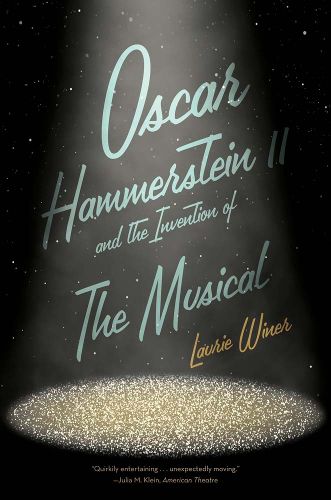Readings Newsletter
Become a Readings Member to make your shopping experience even easier.
Sign in or sign up for free!
You’re not far away from qualifying for FREE standard shipping within Australia
You’ve qualified for FREE standard shipping within Australia
The cart is loading…






A new look at artist Oscar Hammerstein II as a pivotal and underestimated force in the creation of modern American culture
"A charming . . . passion animates [Winer's] Oscar Hammerstein II and the Invention of the Musical."-Brad Leithauser, New York Times Book Review
You know his work-Show Boat, Oklahoma!, Carousel, The King and I. But you don't really know Oscar Hammerstein II, the man who, more than anyone else, invented the American musical. Among the most commercially successful artists of his time, he was a fighter for social justice who constantly prodded his audiences to be better than they were.
Diving deep into Hammerstein's life, examining his papers and his lyrics, critic Laurie Winer shows how he orchestrated a collective reimagining of America, urging it forward with a subtly progressive vision of the relationship between country and city, rich and poor, America and the rest of the world. His rejection of bitterness, his openness to strangers, and his optimistic humor shaped not only the musical but the American dream itself. His vision can continue to be a touchstone to this day.
$9.00 standard shipping within Australia
FREE standard shipping within Australia for orders over $100.00
Express & International shipping calculated at checkout
A new look at artist Oscar Hammerstein II as a pivotal and underestimated force in the creation of modern American culture
"A charming . . . passion animates [Winer's] Oscar Hammerstein II and the Invention of the Musical."-Brad Leithauser, New York Times Book Review
You know his work-Show Boat, Oklahoma!, Carousel, The King and I. But you don't really know Oscar Hammerstein II, the man who, more than anyone else, invented the American musical. Among the most commercially successful artists of his time, he was a fighter for social justice who constantly prodded his audiences to be better than they were.
Diving deep into Hammerstein's life, examining his papers and his lyrics, critic Laurie Winer shows how he orchestrated a collective reimagining of America, urging it forward with a subtly progressive vision of the relationship between country and city, rich and poor, America and the rest of the world. His rejection of bitterness, his openness to strangers, and his optimistic humor shaped not only the musical but the American dream itself. His vision can continue to be a touchstone to this day.